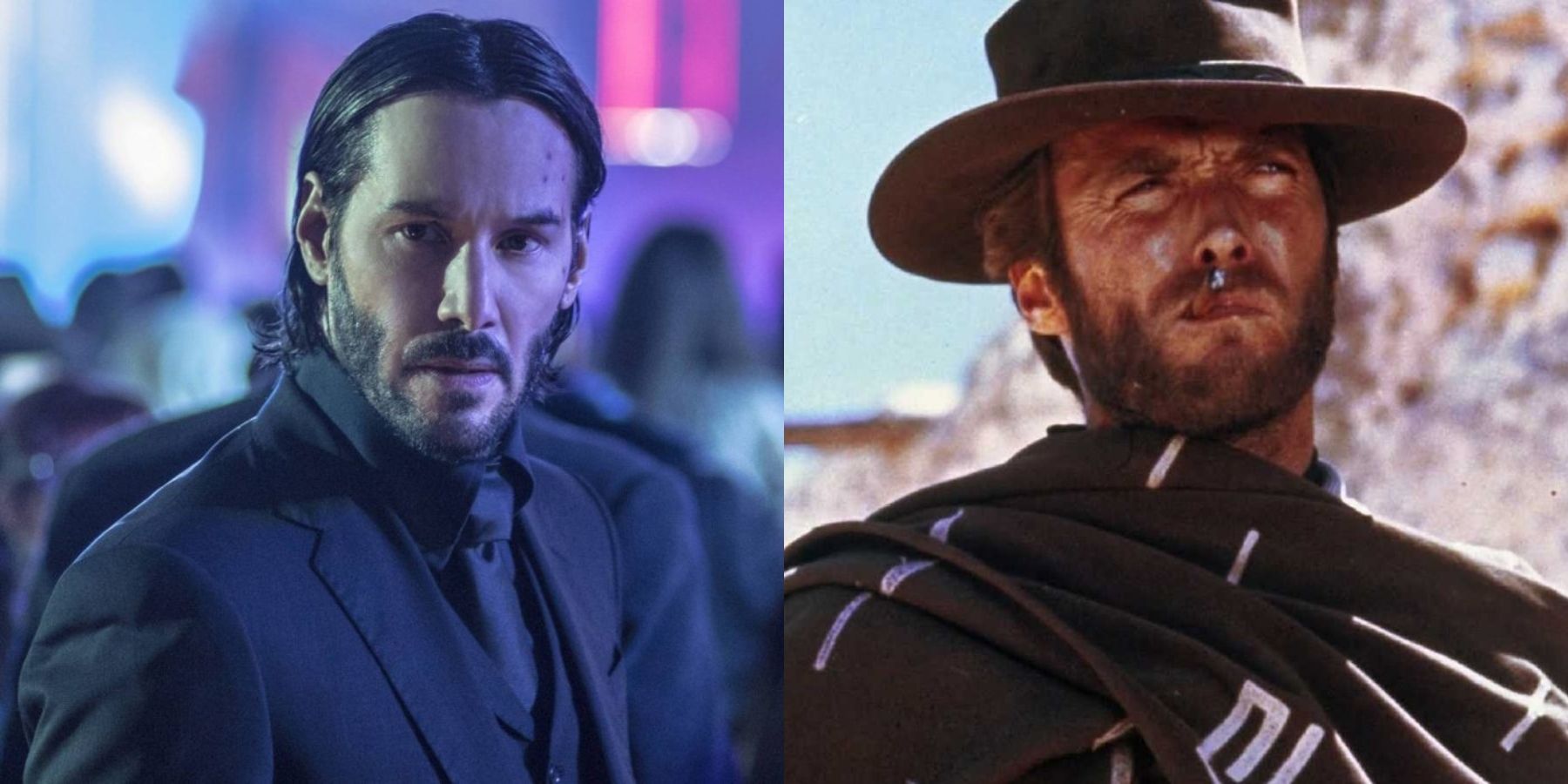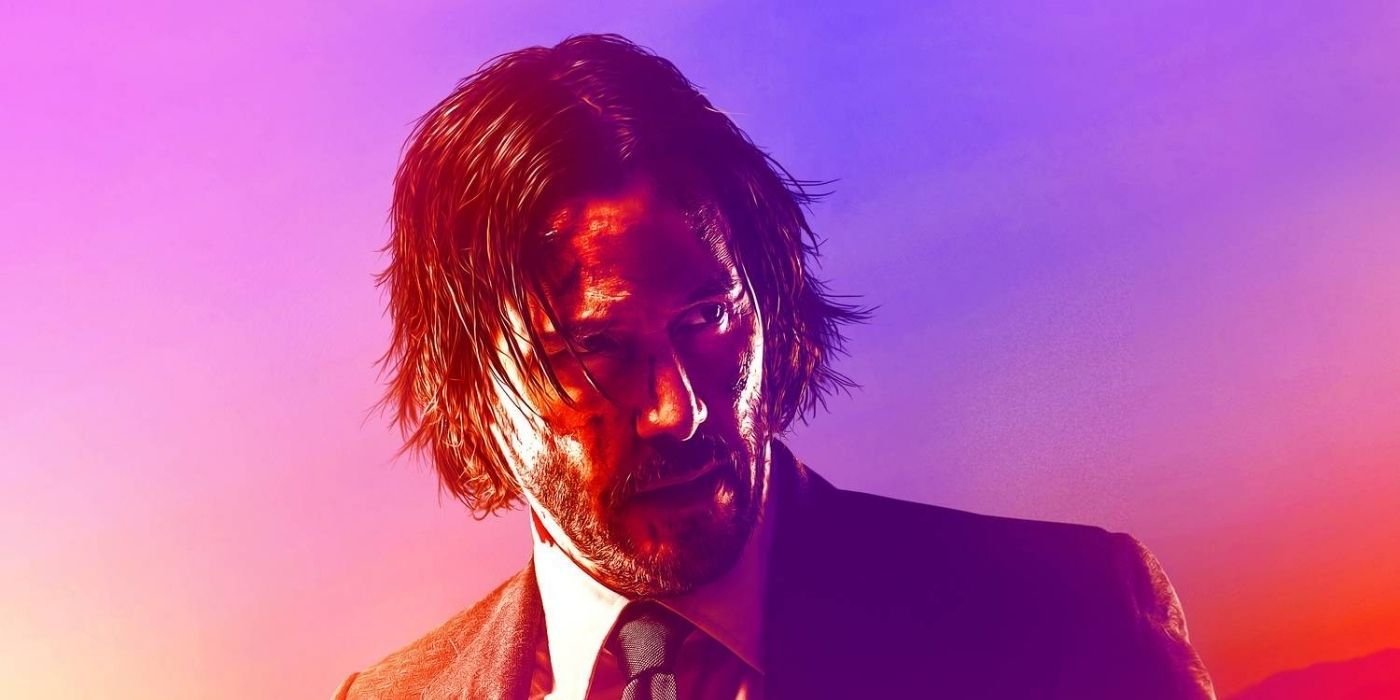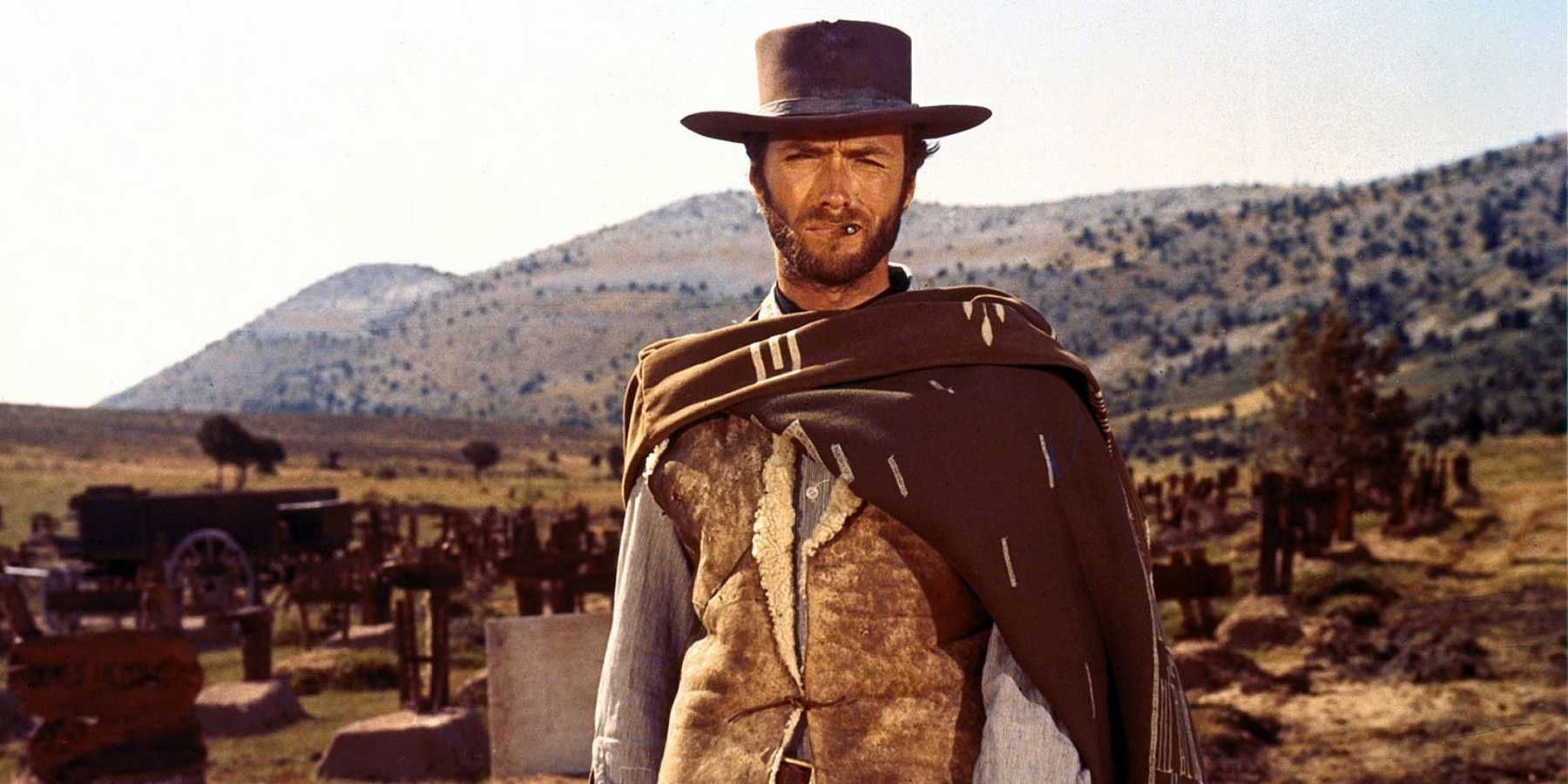
Who would have thought that Keanu Reeves had another action franchise in him? Ever since John Wick was released seven years ago, and a couple of sequels after that (with more on the way), it has become one of the best action series that ranks alongside the Jason Bourne franchise and is reminiscent of the Western genre.
The first John Wick film was a surprise hit at the box office in the fall of 2014, and its sequels were even bigger, becoming another major and successful series for ageless star Keanu Reeves. The John Wick films are modern-day westerns inspired by Sergio Leone's The Man With No Name trilogy. Like Clint Eastwood's character in Leone's series, Keanu's John Wick is a man of few words and an expert marksman, who has enough money and weapons to take on numerous enemies. The gold coins and the hotels in the John Wick series are also references to westerns since several characters kill for money and live luxuriously.
RELATED: Friends Of John Wick: The Franchise That Shook The Action Genre
One difference between John Wick and Eastwood’s ‘No Name’ character is that Clint’s role is a bounty hunter who takes down bad men, primarily wanted killers and criminals, for money, while John Wick is a retired assassin who now kills for vengeance. Wick’s inner rage is driven by a desire to get revenge on those who’ve wronged him. From the men who stole his beautiful Mustang and killed his dog (a gift from his late wife) in the first film, to his elegant home in Long Island getting blown up in the second chapter, Wick is not only angered by the mayhem that occurs toward him, but that he is unable to slow down, take a rest, and retire from his career as an assassin. No matter how many times he says he's retired, John is always getting pulled back in.

And yet, despite that inner rage and sadness over the things he’s lost in life (including his wife), Wick manages to be cool, calm, and focused when it comes to doing his job as a hitman. When he starts shooting men point-blank in the head and chest, there’s no stopping him from doing what he does best. Eastwood’s protagonist in the Dollars trilogy is also a man of focus and precision because he’s always the fastest and most accurate shooter in every shootout.
While Clint’s mysterious gunslinger isn’t a man seeking vengeance, and his past life is unknown, there are moments when he expresses compassion and humanity towards other characters in the Dollars series. For instance, in A Fistful of Dollars, he helps a family escape from Ramón, a murderous gang leader who wants complete control of his town, and is taken down by Clint for torturing him and his friend. In For A Few Dollars More, he gives Mortimer (a Colonel turned bounty hunter) the upper hand against the ruthless outlaw Indio when he realizes the Colonel’s vendetta towards Indio is to avenge his sister’s death. In The Good, The Bad, And The Ugly, Clint’s Blondie comforts a dying Union general by giving him a bottle of alcohol to drink, and later comforts a dying Confederate soldier by handing him his cigar.
John Wick’s past is also mostly mysterious, but when mentioned to others by enemies like Viggo and good friends such as Winston, Wick is an assassin who’s both feared and respected because nearly everyone knows how dangerous and skilled he is. For instance, there's a scene in the first film where Viggo sternly explains to his son Iosef that Wick once killed three men with only a pencil, and took down a lot of men on his last mission (the "impossible task"), which led to Wick's retirement and Viggo's successful rise in establishing his Russian crime syndicate in New York.
Wick also expresses gratitude and humanity towards his friends, especially Winston, who has known Wick for years and, like a father, has guided him through the rules of his Continental Hotel in New York. This particular hotel is a fancy piece of work because it's a safe haven for assassins to buy a room, have a nice meal, get a drink at the bar, and enjoy the nightlife. Traditional gold coins, like in the old Westerns, are used to pay for access and service at the hotel. These coins are also given to assassins as compensation for doing their job, and are commonly used to cover resources they need, such as weaponry, clothing, and the clean-up of dead bodies ("dinner reservations").
The Continental Hotel is not only in New York but also in other key locations around the world, such as the exquisite Rome, Italy (as shown in John Wick: Chapter 2). While not as fancy, the hotels in the Dollars trilogy are more traditional but also provide similar services, as well as taverns and saloons nearby that serve food and whiskey, and guys hanging around playing cards.

While John Wick and Eastwood's 'No Name' character each appear to be untouchable, both marksmen are sometimes vulnerable because they get beat up at times, and have to face off against tough villains and killers. In the first two Dollars films, Eastwood gets beat up by ruthless gangs for lying about his identity and for plotting schemes against them. In The Good, The Bad, And The Ugly, the bandit Tuco tortures Clint's Blondie by having him walk in the steaming hot desert, without food or water, in order to extract information from him concerning $250,000 in gold. John Wick may be an expert in hand-to-hand fighting and shooting, but when he fights worthy adversaries (such as assassins Kirill and Ms. Perkins in the first film, and Cassian in the second film), Wick is left shot, scarred, and wounded.
John Wick and The Man With No Name are two franchises that deal with the nature of professional killers, who either do it for money, pleasure, and/or revenge, and show how these worlds can seem fancy or luxurious, but are truly brutal and cold. The Dollars trilogy redefined the Western genre, and the John Wick series is heavily inspired by Leone's Westerns due to the colorful characters, the action, the shootouts, and the luminous locations. Keanu's John Wick and Eastwood's gunslinging protagonists are examples of strong men who face obstacles in their long, epic, respective journeys, but survive and live on in order to keep going in life not because they have to, but because they choose to.
More: John Wick: Is There Still Room For The Franchise to Grow?

